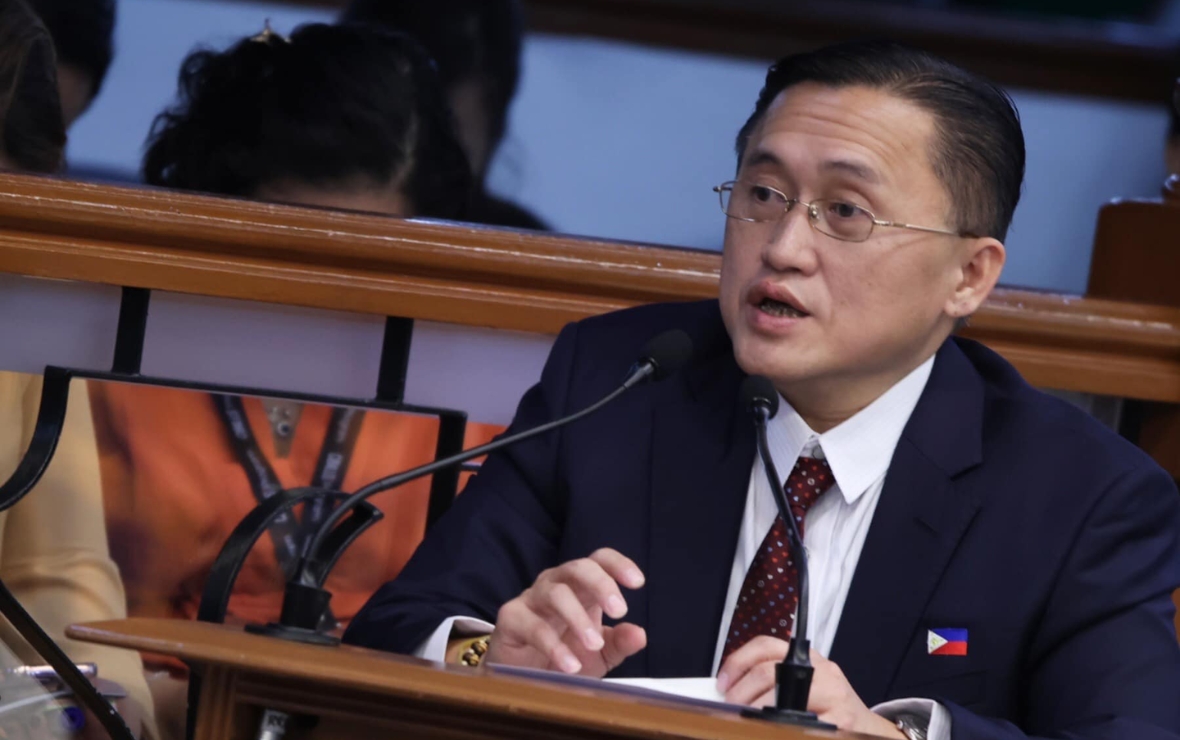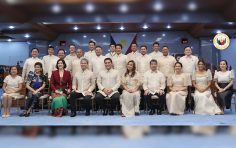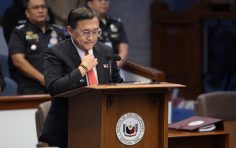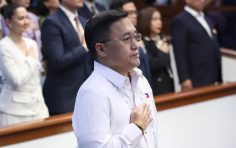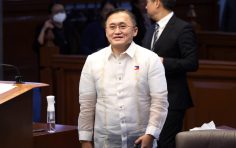SENATOR Christopher “Bong” highlighted the critical importance of effectively implementing existing economic reforms, particularly those enacted under former president Rodrigo Duterte’s administration, with a goal of making the Philippines more attractive to foreign investors, amidst ongoing discussions about amending the 1987 Philippine Constitution, particularly its economic provisions.
“Sa ngayon naman po with or without amendments ng Constitution, marami tayong mga batas, mga economic reform laws, na kailangan pang maipatupad ng maayos upang maging attractive ang bansa sa mga foreign investors,” said Go in an ambush interview on Tuesday, March 5, after aiding indigents in Lucena City, Quezon province.
Among the legislative milestones from Duterte’s term that Go pointed out are the Republic Act No. 11659, also known as the Public Service Act. This law enables 100% foreign ownership in key sectors such as airports, railways, expressways, and telecommunications.
Furthermore, the amendment to the Foreign Investments Act of 1991 through RA 11647, liberalized the economy by lifting restrictions on foreign enterprise ownership, allowing 100% foreign ownership outside the sectors listed in the Foreign Investment Negative List.
Additionally, the amendment to the Retail Trade Liberalization Act of 2000 through RA 11595, reduced the minimum required paid-up capital for foreign retailers, inviting more global brands to enter the Philippine market.
Lastly, the Ease of Doing Business Act of 2018, or RA 11032, streamlined the delivery of government services, implemented a “zero contact” policy, and mandated automatic approval for applications not processed within prescribed timelines, thereby significantly improving the business environment for both local and foreign entities.
Go stressed the importance of properly implementing these existing economic reform laws to stimulate foreign investment without necessarily resorting to constitutional amendments.
The senator reiterated his cautious views on the ongoing discussions about amending the Constitution. Emphasizing the complexities involved in amending the Constitution, Go stated, “Dahil hindi naman ito basta-basta na bubuksan mo, isang batas lang na gusto mong ipasa… sa Lower House, at sa Senado…”
“Konstitusyon po itong pinag-uusapan natin. At my consistent stand, hindi po dapat ang pulitiko ang makikinabang. Sa anumang posibleng pag-amyenda ng konstitusyon, dapat pong makinabang dito ay ang ordinaryong Pilipino lalo na ang mahihirap nating kababayan,” he added.
Go highlighted the need to ensure that any proposed constitutional change should benefit the underprivileged sectors of society, emphasizing the absence of hidden agendas and discussions on term limits.
“Kung mayroon mang gagalawin talaga diyan sa Konstitusyon… kung saka-sakali man pong umabot tayo diyan, dapat po ang Pilipino, ang mahihirap nating kababayan ang makikinabang, hindi po ang pulitiko,” he said.
“Dapat po walang hidden agenda, wala pong pag-uusapang mga term limits dapat diyan. Unahin muna ang kapakanan ng mga mahihirap nating kababayan,” added the senator.
Regarding the timeline for passing Resolution of Both Houses 6 (RBH 6), which seeks to amend specific economic provisions of the Constitution, Go stressed the importance of thorough deliberation given the foundational nature of the Constitution.
“Sa akin naman po, wala pong timeline, ‘wag natin madaliin. Pag-aralan natin ito nang mabuti… Unang-una, depende po ‘yan sa leadership ng Senado. Collegial body po ito, 24 po kami, isang boto lang po ako dito. Ongoing naman po ang committee hearings,” said Go.
“At gaya ng nabanggit ko kanina, hindi po ito ordinary legislation, hindi po ito tungkol sa usual na batas na ipapasa natin. Saligang Batas po ang pinag-uusapan natin dito. Fundamental law of the land ang nakasalang po dito. Pag-aralan natin nang mabuti. Ayoko pong maglagay ng timeline dito. Pag-aralan natin pagdebatehan natin sa plenary,” he concluded.

